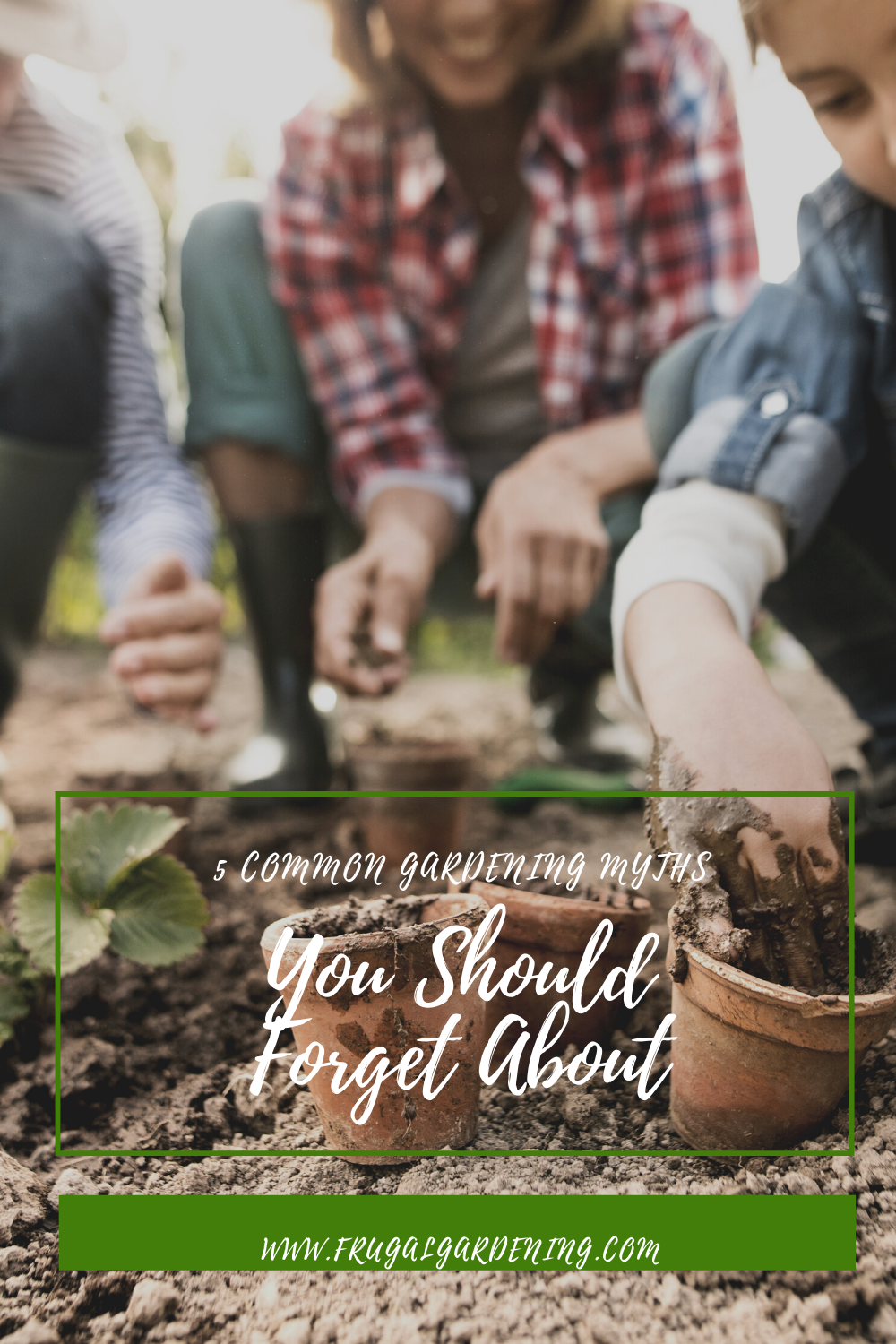
The gardening world is rife with anecdotal information. Since I started gardening over 10 years ago, I’ve run into my fair share of common gardening myths. People love to make big claims about their gardening techniques. It turns out, though, that while the “secret sauce” might have some truth to it, it’s usually a lot more complicated. Correlation doesn’t equate to causation, after all. Just because your fertilizer application led to better growth last year doesn’t mean you’ll achieve the same results the next. Why? Adding fertilizer willy nilly is a bad idea. It can create nutrient imbalances and produce harmful runoff. Which other common gardening myths are hogwash? Let’s take a look.
Coffee Grounds are Great for Your Garden
Don’t listen to people who try to sell you on this common gardening myth. Coffee grounds are best kept for your compost pile. Spent grounds can actually do more harm than good when added to your garden. Why? Because they often contain high amounts of caffeine, they can actually suppress plant growth.
Cedar Wood Chips Are Bad For Your Plants
I avoided cedar wood chips for the longest time because I had read this gardening myth online, and it stuck in my head. Years later, I decided to try it out for myself. It turns out the wood chips had no ill effect on my plants. In fact, adding mulch actually helped my plants better conserve water, which improved their growth significantly. According to OSU Extension Service, the poor plant health that people attribute to cedar chips may really be related to other problems entirely.
Epsom Salts Can Improve Plant Growth
Ugh. This is a widespread gardening myth, and it drives me up the wall. Don’t add nutrients to your soil without testing it! That’s it. That’s the takeaway. Epsom salts are high in magnesium, so if your soil already contains plenty of magnesium, there’s absolutely NO point in tossing Epsom salts into your garden.
Fertilize On a Yearly Basis
Again, fertilizing without understanding the composition of your soil is a big mistake. This is a common gardening myth that often crops up as a piece of gardening wisdom in gardening guides, articles, and more. Fertilizing depends on the plant in question and the soil in which it’s growing. Don’t apply fertilizer unless you understand WHY you’re doing it.
Suffocate Weeds With Mulch
Technically, this is both a gardening myth and a gardening truth. Lots of mulch will suffocate weeds, but too much can also cut off oxygen to your plants’ roots. Never add more than 3 inches of mulch. You’re better off weeding before adding mulch than trying to kill weeds with an ultra-thick layer of the stuff.
Eggshells Are a Great Source of Calcium
This extremely common gardening myth has some truth to it. Eggs do contain calcium! However, barely any will make its way into your garden by way of the shells. Eggshells take an incredibly long time to break down—even when added to a compost pile—so they’re pretty useless in the garden. Even so, people still swear by them. Another eggshell myth is that they help deter soft-bodied pests like slugs. Not true. Use diatomaceous earth instead.

Steph Coelho is a freelance writer gardening in zone 5b. She is a certified Square Foot Gardener and has taught various garden-related workshops. When she’s not digging in the dirt or writing, she’s cooking up fresh produce, running, or listening to her favorite podcasts.
Leave a Reply